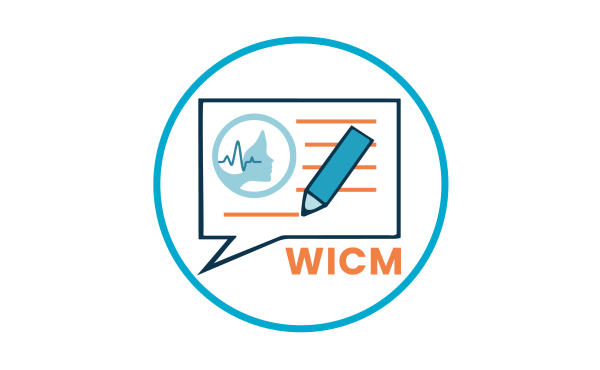WICM: Inspiring Careers in Critical Care – Dr Roxy Bloomfield
Introduction from the interviewer:
My time working in Intensive Care as an ACCS-EM trainee was one of the most influential periods of my career so far. I worked with a truly incredible team. During the lockdown period, I was able to reflect on my time in Intensive Care and my role as a woman in medicine. As part of this, I approached eight women in the Intensive Care team to share their inspiration and their perspective. It was a privilege to hear their stories. Thank you to WICM for this platform and to the women you will read about, for their time and their words.
Dr Jasmine Medhora

Consultant in Anaesthesia, Intensive Care, Prehospital and Retrieval Medicine.
What was your path to becoming an Intensive Care Medicine consultant?
I graduated a pretty long time ago and did a variety of junior jobs, including EM or Accident and Emergency, as it was known before it became a specialty. I liked the sharp end of medicine this provided – well, partially provided. At that time, you could pick and choose your jobs although they lacked career structure and I reached a crossroads. I had wanted to go to New Zealand since childhood and applied for a year’s rotation. I started with a gynaecology surgical job covering general surgery when on-call and had great supervision from the consultants. I had considered surgical training as the route to EM and was tempted by a surgical rotation in New Zealand, but I turned this down to come back to the UK – I was homesick.
Prior to going away, my dad, who is not medical, randomly gave me a textbook of anaesthesia. Reading that during my year away along with helping the anaesthetists prior to operating on the patients was when the seeds were planted for a career that could be engaging and allow me to work to my strengths. My eventual route into anaesthesia and ICM was neither straight nor easy with several stops on the way doing obs, gynae, paeds, neonates, standalone intensive care posts, failing exams and locum work.
Despite this many people still gave me a chance along the way. Those who offered jobs, believed in my worth, suggested research projects, encouraged me to persist, organised teaching, said I was doing a good job. They saw a glimmer of something and never gave up on me when I had little left in the tank to continue on from repeated knockbacks and downfalls. I am glad they did – they know who they are; I worked my socks off for them. True friends and mentors who never asked for anything in return. The balance tipping from adversity towards supporters spurred me on to continue in medicine.
I was an SHO 8 when I finally managed to land a registrar rotation to dual train in anaesthesia and ICM. I was described as ‘time expired’ by a TPD, but if I had my time again, I wouldn’t change a thing.
What do you enjoy about working in Intensive Care Medicine? Has this changed over time?
I enjoy the teamwork in ICM. Over time the hierarchy has become flattened and there is more shared decision making. The question being asked now is ‘What are we going to do about this?’. This has empowered the multi-professional workforce to contribute meaningfully to patient care without fear of speaking up. It’s OK to say, ‘I don’t know – what do you think?’. From time to time there is a need to carry the mantle of responsibility and that is also acceptable but now accomplished with the support of the team with you. Hard to remember that it wasn’t always this way!
We have a mix of doctors interested in ICM coming through from different specialties now, which is enlightening and makes for a good learning environment – for me especially! The arrival of FY1s in our ICU has been a blessing and I’m happy to say many have gone on to careers in anaesthesia, ICM, acute medicine and others. Maybe this would have been a good post for me back in the day?
How does your work in EMRS and the medical education team contribute to your Intensive Care role?
Being able to work with the Emergency Medical Retrieval Service is something I had been seeking for a long time; Emergency Medicine, transport, retrieval, critical illness and teamwork. It’s not a conventional medical role though, there’s so much more. Communication, understanding and compassion are everything. Like taking in a lungful of fresh air, it has brought a new focus and vitality into every corner of my life. Working with this team has finally prompted me to truly be myself – because to be myself is to function well. I find the work and the kindred spirits I work with life-affirming, my second family. I am indebted to them all for their acceptance, generosity and respect.
My role as Associate Director of Medical Education has improved my understanding of doctors in training, their problems and challenges. I hope it has also enabled better communication with them. When you become a consultant, you quickly lose sight of what it is to be a trainee and the generation gap develops. One of the roles is to enquire when there is conflict or concern and to create a safe space for doctors to share their worries. Mediating between the health board, the deanery, trainers and trainees has given me many useful insights and broadened the landscape for me to be able to see all sides.
Is there anything you think should change with regards to training to encourage more women into ICM?
There are more women coming into the specialty now, and there is still more work to do for better flexibility as a specialty. I’m no stranger to unnecessary comments about being a woman in medicine and ICM. I’m hoping it’s a bit better now but let’s all try harder anyway and think about the language we use day to day.
I would be delighted to see equivalent, population reflective ratios in ICM. This should not only be about gender. For women in ICM, perhaps it’s about increasing the number of women and encouraging the right people into the specialty. We need to create an environment where everyone can speak out, be heard and respected.
Did ICM change your outlook on starting a family? If so, how did you negotiate this?
Having a family was not a difficult decision. Fitting it in with training was. I was well into my registrar years before embarking. The delay was partly due to having an itinerant lifestyle and an inability to transfer training numbers between deaneries. On finding I was pregnant, I tried to use this to work towards a transfer and live at home 90 miles away, but with no success.
In the job, generally it was seen and voiced as a burden. With working mothers though, the reception was warm and caring. Nursing staff were superb, keen to protect you from the lifting and bending which damages your back and making sure you were fed and watered.
After our eldest was born, I was keen to return to work after about 6 months. I only had a few months of training left. I hoped I could finish my training soon and be free to choose any location. But if I did want this length of time off, I was informed I would need to repeat an additional 9-12 months. So, I went back after 3 months instead. Not a positive step and a great regret for me.
When our youngest came along, I was a consultant and things were different as control over the workload was slightly better. But the burden on my husband became much greater and without him I would not have a job, family or life now. He ploughed in with the less traditional house-husband role and relinquished his career. Neither of us could pretend it was easy or democratic but the working patterns and hours that anaesthesia and ICM demand means some kind of arrangement is necessary. You would need to ask my children in 20 years’ time to find out what they thought. Parents do what they can in the main and don’t set out to spend less time with their children – but work does steal us away and only brings guilt to conflict with the sense of duty.
How did you approach the opportunity of becoming Associate DME?
Early in 2015 I fell and sustained a head and neck injury. It was a pivot point on which my life changed forever. I lost strength in both hands due to multilevel disc prolapse. I was determined not to have surgery and paid for physiotherapy to help my recovery. It was incredibly slow and over the course of six months I lost my spirit. What could I do now I had little prospect of being able to perform laryngoscopy safely again?
I underwent a phased return to work, but I was overanxious in theatre. Although most of the strength had returned, I tired rapidly and had lost all confidence. Many colleagues were kind and welcomed me, sharing their injury stories; without them I would have given up.
I started 2016 full time, but with a reduced workload. It was clear I couldn’t be as productive as I had been. So why did I apply for a post in the directorate of medical education as an associate? Why take something else on when I didn’t have the time, energy or when I really needed to focus on the core job? For some reason I had to have something else to aim for. I came from a teaching not a medical family and my wish to see fair play attracted me to speaking up for the quality of training and raising the status of the trainee and trainer body in the organisation. The role is enriching, and I have found another group of like-minded individuals to whom I feel aligned.
What reflections from the pandemic situation will you take forward with you?
Lockdown and COVID has brought people together and torn people apart. I hope it brings in change and a new informality. Ways to work from locations other than ‘the office’ has increased presenteeism so cutting off from work and colleagues – setting the boundaries and focusing on life outside of work – is ever more important. A break from work is a necessity not a luxury. Keep in touch while you can and tell people you love them – no matter what.
Where the outcomes have been positive in my career, these have been facilitated by men and women alike – true role models and supporters; equality exists right under your nose. Your tribe is out there – you just need to find it. My only wish now as I approach the end of my career is that I can pass it on. To any gender; to those who need that second chance, who lose their voice in an interview or an exam, time and again. I hope I can do for them what others did for me.
Related Content
Written by: Jasmine Medhora & Laura Allan

